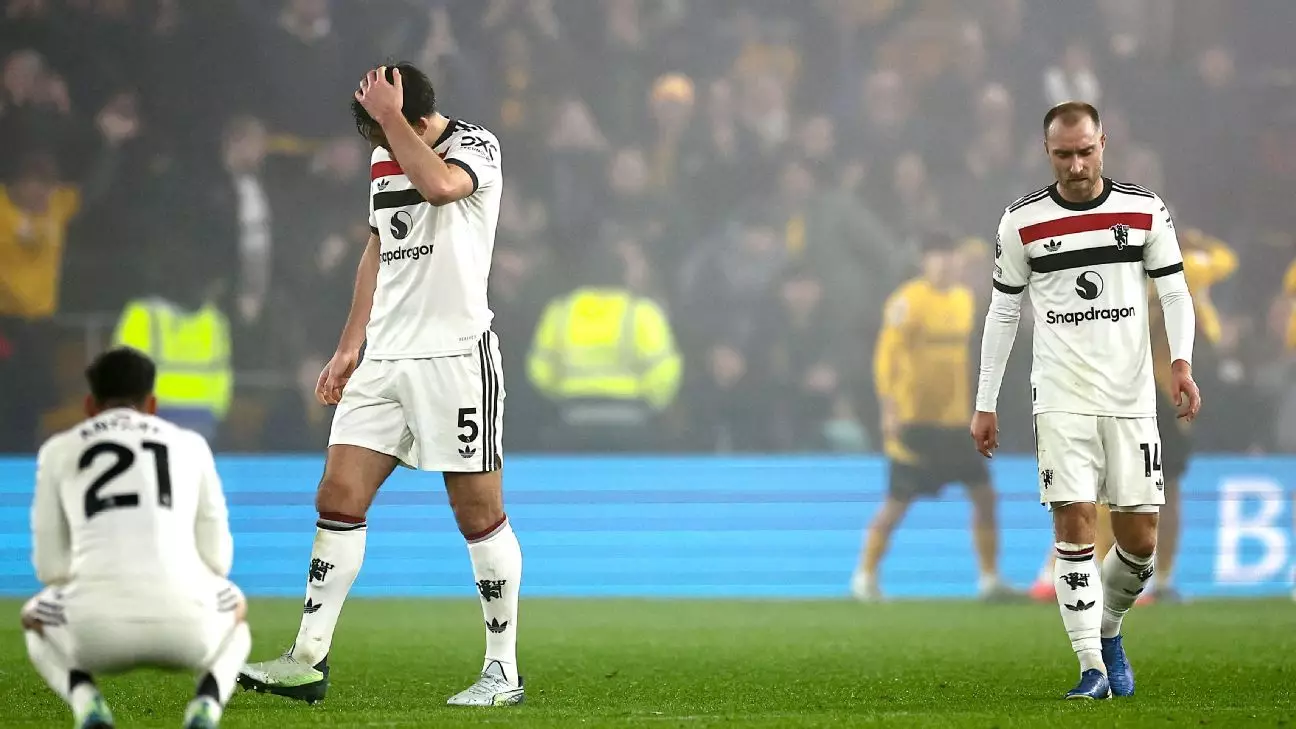Manchester United’s recent 2-0 defeat to Wolverhampton Wanderers has intensified the scrutiny on manager Ruben Amorim. This loss marks the team’s third consecutive setback, and the broader implications of this slump are hard to overlook. With only two wins in eight Premier League outings since his appointment, Amorim has found himself at the center of a storm, grappling with the heavy expectations that accompany the managerial role at Old Trafford. Such a grim tally not only affects the morale of the players but also sends ripples of disappointment through the loyal fanbase that had hoped for immediate revitalization after the departure of Erik ten Hag.
The match against Wolves revealed deeper tactical issues that Amorim must address if he is to reinvigorate United’s fortunes. For instance, the critical moment came just a couple of minutes after the second half began when captain Bruno Fernandes received a red card, severely hindering United’s chances of securing a positive result. Amorim noted after the match that his team lacked aggression, which may speak to a broader issue regarding mental preparedness and the team’s overall fighting spirit. In professional football, especially at clubs with a rich history like United, such characteristics are non-negotiable. The inability to control the momentum of the game, combined with a failure to capitalize on set-pieces, illustrates a team struggling to find its identity.
Amorim’s analysis of the game highlighted the need for an improvement in relationships among the squad and a call for greater aggression. While he acknowledged that the squad has shown potential, the harsh reality remains that potential alone cannot translate to results. Absences in training sessions, as noted by Amorim, may contribute to a palpable disconnect on the pitch, hindering player collaborations and synergy. The manager’s assertion that they “can’t control the games like in previous losses” suggests a worrisome trend of decline in strategic execution and adaptability during critical game phases.
Despite the challenges, it’s crucial for Amorim to cultivate a resilient mindset within his ranks as the season progresses. The road ahead is demanding, and with only four wins across all competitions since his arrival, the pressure continues to mount. United’s rich history is built on the foundations of strength and competence; thus, falling further down the Premier League hierarchy is not an option. Emphasizing team unity and fortitude in the coming weeks could be key to turning this disheartening chapter into one of redemption.
Ultimately, for Manchester United to escape this rut, a rediscovery of their core footballing ethos is essential. It’s time for Amorim to not only instill an aggressive attitude but also to foster a cohesive unit capable of rekindling the winning mentality that fans so dearly miss. As the club navigates through this challenging period, the supporters await a spark of brilliance that could herald the aesthetic of winning football back to Old Trafford.

